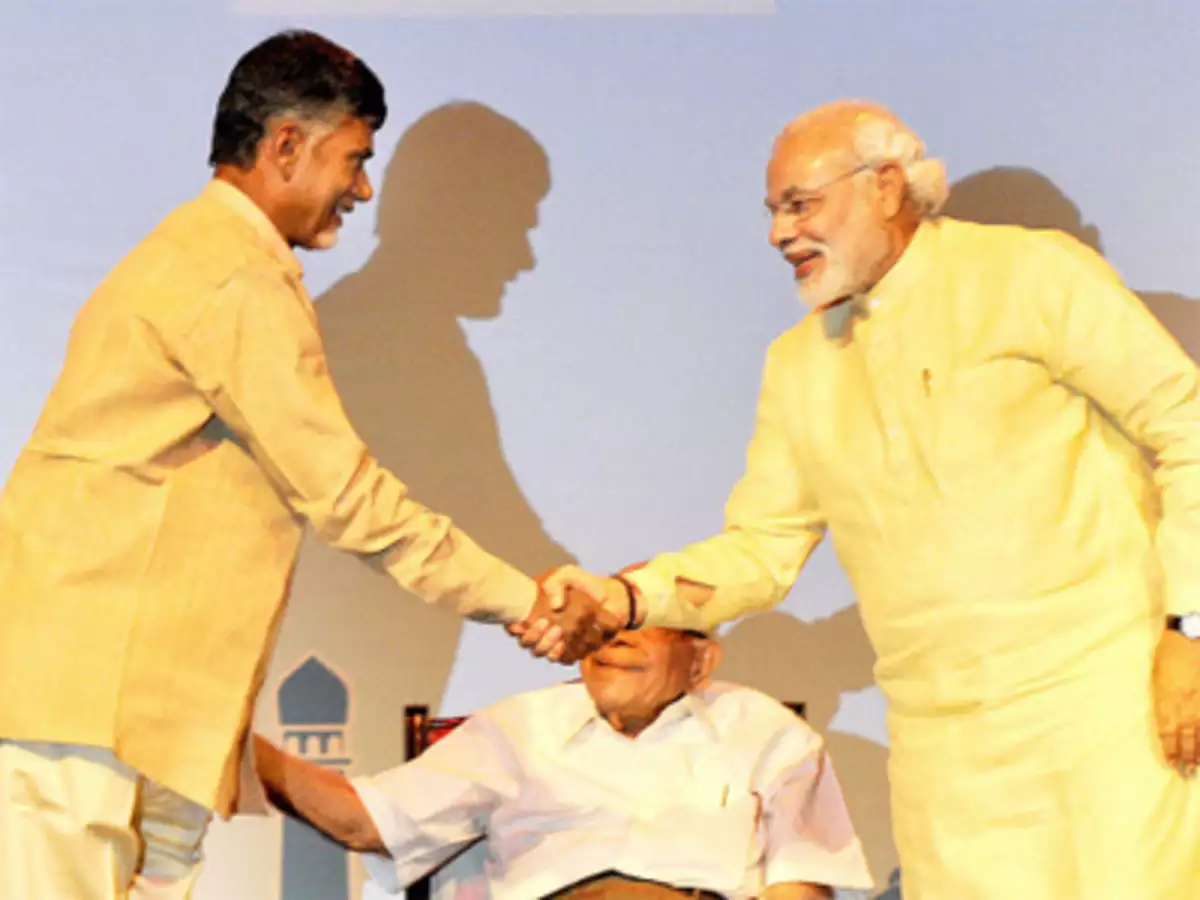In a significant tactical move, the Bharatiya Janata Party (BJP) orchestrated a strategic comeback in Andhra Pradesh by reuniting with its estranged ally, the Telugu Desam Party (TDP), alongside former Chief Minister N. Chandrababu Naidu. Despite a meager 0.84% vote share in the 2019 Assembly elections, the BJP’s resurgence signals a potential shift in the state’s political dynamics.
The BJP’s revival in Andhra Pradesh comes amid lingering discontent over unfulfilled promises, notably the Special Category Status (SCS), which marred its standing. Conversely, the TDP’s departure from the National Democratic Alliance (NDA) just before the 2019 elections, though perceived as belated, garnered significant voter support, highlighting the party’s enduring influence despite securing only 23 assembly seats.
While the Yuvajana Sramika Rythu Congress Party (YSRCP) and its leader Y.S. Jagan Mohan Reddy dominated the 2019 elections with an impressive 50% vote share, recent developments, including Y.S. Sharmila’s departure from the YSRCP and Naidu’s arrest on corruption charges, have reshuffled the political landscape. Naidu’s arrest evoked sympathy, potentially bolstering the TDP’s position as the main opposition.
As the Congress seeks to leverage Sharmila’s departure to challenge the YSRCP, the political terrain is poised for a three-cornered contest. The division of anti-incumbency votes between the United Progressive Alliance (UPA) and the NDA, alongside potential shifts in voting blocs, particularly among minorities and backward castes, adds uncertainty to the electoral equation.
The forthcoming elections will test the resilience of established alliances and the appeal of emerging contenders, with the BJP-TDP coalition vying to disrupt the YSRCP’s dominance. As Andhra Pradesh braces for political upheaval, the electorate’s response will determine the trajectory of governance and leadership in the state.






